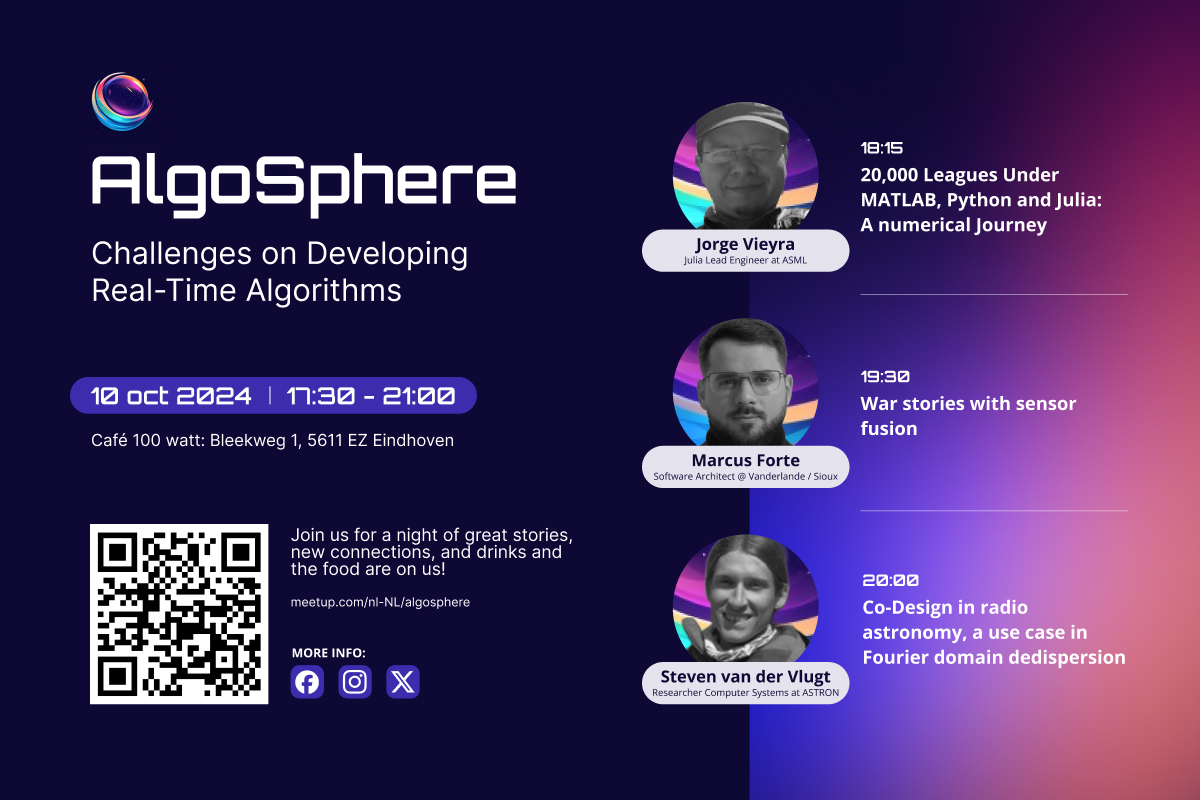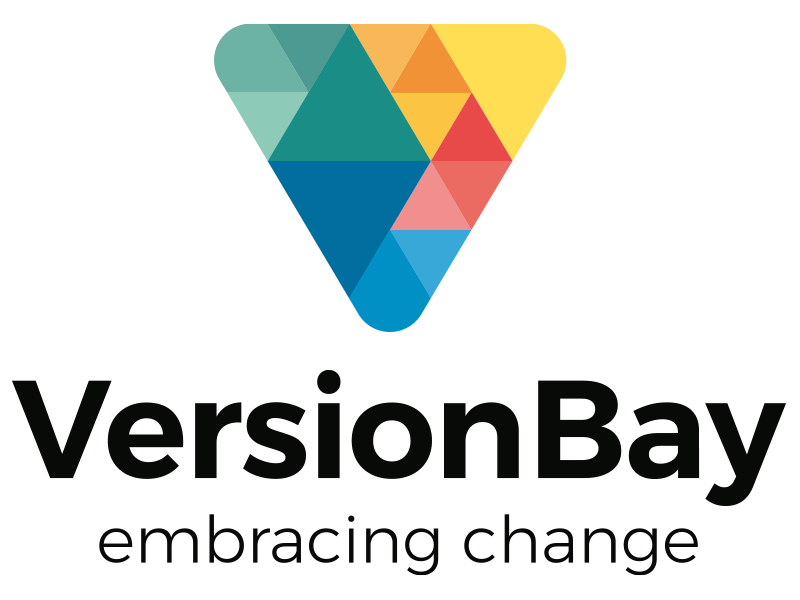

You are here: Events / AlgoSphere: Challenges on Developing Real-Time Algorithms

Language: English
Date: 10 Oct 2024
Time: 17:30 - 21:00
Entry fee: Free
Welcome to AlgoSphere—Algorithm Excellence, Shared Experience!
Whether you're a seasoned developer or an enthusiastic coder, AlgoSphere is your safe haven for exploring, sharing, and mastering the art of algorithm development.
What We’re About: At AlgoSphere, we believe in the power of collaboration and shared knowledge. This is a space dedicated solely to technical minds, where we dive deep into the complexities of algorithms across all programming languages. We come together not just to learn, but to share war stories, exchange insights, and solve challenging problems.
There is free food and drinks sponsored by ASML.
Agenda:
----
Title: 20,000 Leagues Under MATLAB, Python and Julia: A numerical Journey
Abstract:
Speaker: Jorge Vieyra – Julia Lead Engineer at ASML
Links: https://www.linkedin.com/in/jorge-vieyra-76280542/
----
Title: War stories with sensor fusion
Abstract: Practical Sensor Fusion: have you ever wondered how one combines multiple sensors from different sources, different working principles and different limitations into one single and accurate precise estimation? And what kind of application will this be useful?
In this speak I will tell you the story of how a sensor fusion algorithm was used to build the foundation of a 3d scanning start-up company - all the way from a research paper into a real hardware. During the jorney of the algorithm I will share the struggle of requirememt specification, developing, testing, verifying and maintaning an algorithm.
Links: https://www.linkedin.com/in/marcusdaviforte/
Speaker: Marcus Forte – System Architect @ Vanderlande / Sioux
----
Title: Co-Design in radio astronomy, a use case in Fourier domain dedispersion.
Abstract: The Fourier-domain dedispersion (FDD) algorithm is introduced as a new method for correcting frequency-dependent dispersion delays in radio emissions from sources like pulsars and fast radio bursts. Unlike traditional time-domain algorithms that adjust delays with time shifts, FDD uses phase rotations on Fourier-transformed data. This approach addresses the limitations of existing algorithms, which often suffer from low arithmetic intensity and memory-bandwidth constraints. Implemented on GPUs, FDD demonstrates superior performance and energy efficiency compared to both standard and optimized versions of the DEDISP software, especially when processing many trial dispersion measures (DMs). The FDD algorithm improves performance by about 20% and reduces energy consumption by 5% in high-DM scenarios. Additionally, it enhances periodicity surveys for pulsars by omitting the Fourier transform back to the time domain. Overall, FDD is well-positioned to leverage advancements in GPU technology for even greater computational gains in the future.
Speaker: Steven van der Vlugt - Researcher Computer Systems at ASTRON
Links: https://www.linkedin.com/in/steven-van-der-vlugt-2880223b/